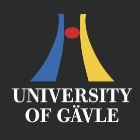Gävle University College (HUG) is a public higher education institution located in Gävle, a city on the east coast of Sweden. It is known for its innovative teaching methods and wide-ranging research areas, and enjoys an international reputation in several disciplines. Since 2005, it has officially become a university college and continues to expand its education and research programs. Here are some key information about Gävle University College:
Overview
Founded: 1977 (as a college), officially became a university college in 2005
Institutional nature: public
Main campus location:
Gävle, the main campus is located near the city center.
History
The history of Gävle University College dates back to 1977, when several independent higher education institutions and technical schools were established.
In 2005, these colleges merged to become Gävle University College, and gradually developed into a comprehensive education and research center.
During its development, Gävle University College has continuously expanded its subject coverage and established several research centers.
School Strength
Gavle University College has about 16,000 students (including undergraduates, postgraduates and doctoral students) and about 1,300 faculty and staff.
It offers a wide range of undergraduate and master's level courses covering multiple subject areas.
It enjoys an international reputation in the fields of health sciences, engineering, information technology, social sciences and educational sciences.
The school's research results have an important influence internationally, especially in sustainable development, health promotion and social work.
Educational philosophy
Emphasis on the combination of theory and practice, encouraging students to develop skills through practical projects and service learning.
Focus on interdisciplinary cooperation, especially collaboration between different majors.
Attach importance to international education, recruit a large number of international students, and provide courses taught in multiple languages.
Committed to cultivating professionals with innovative spirit and social responsibility.
Subject settings
Bachelor's degrees:
Health sciences (such as nursing, public health, etc.)
Engineering (such as mechanical engineering, electrical engineering, etc.)
Information technology (such as computer science, software engineering, etc.)
Social sciences (such as social work, psychology, etc.)
Educational sciences (such as teacher education)
Master's degrees:
Health sciences
Engineering
Information technology
Social sciences
Educational sciences
Master's programs in other related fields
PhD programs:
Gavle University College offers doctoral programs in specific subject areas to support in-depth research and innovation.
Featured projects
Sustainable Development Research Center: Focuses on the research of environmentally friendly technologies and policies.
Health Promotion Research Center: Promotes research in public health and social health care.
Entrepreneurship support: There is a dedicated entrepreneurship center to help students transform scientific research results into commercial applications.
International cooperation projects: Actively participate in the EU's Erasmus+ project and other international exchange programs to provide students with opportunities to study abroad.
International cooperation
Gavle University College has established partnerships with many top universities around the world and participates in many international research networks and alliances.
Provide exchange student programs to promote students' international vision and cultural exchanges.
As a member of several international organizations, Gavle University College enjoys an important position in the world.
Research Facilities and Resources
Health Sciences Research Laboratory: Conducts research in public health and social healthcare.
Engineering Laboratory: Conducts research in mechanical engineering and electrical engineering.
Information Technology Laboratory: Conducts research in computer science and software development.
Social Science Research Center: Researches social issues and community development strategies.
Expenses
For EU/EEA students, Gavle University College is usually free, but a small registration fee is required.
For non-EU/EEA international students, tuition fees vary depending on the major, and specific fees should be consulted directly with the school or visit its official website for the latest information.
In terms of living costs, the cost of living in Gavle is relatively moderate, but you still need to consider the costs of accommodation, food and personal expenses.
Application Requirements
Applicants usually need to have a high school diploma or equivalent, and may need to complete certain prerequisite courses.
For master's programs, an undergraduate degree in a related field is usually required.
You need to pass an entrance exam or interview to demonstrate your interest in the chosen major and your ability to pursue a related career.
English proficiency is usually at level B2 (according to the Common European Framework of Reference for Languages CEFR), but may be higher for some majors.
Campus Life and Support Services
Student Support: Comprehensive student support services are provided, including academic guidance, mental health support and career planning.
Campus Facilities: Modern teaching buildings, libraries, sports facilities and student dormitories provide students with a good learning and living environment.
Cultural Activities: Various cultural and social activities are held regularly to enrich students' extracurricular life.
Unique Features
Problem-Based Learning (PBL): Gavle University College adopts a problem-based learning approach in some courses. This teaching model emphasizes students' ability to solve problems independently, promotes critical thinking and teamwork.
Close Industry Connections: The school maintains close cooperation with local and international companies to ensure that the course content keeps up with the needs of industry development and provides students with internships and employment opportunities.
Strong Research Background: Especially in the fields of health sciences, engineering and social sciences, Gavle University College's research results are highly regarded internationally.
Regional Features: Make full use of the industrial and technological resources of the region to carry out research and education projects closely integrated with local development.
-

Linnaeus University
-
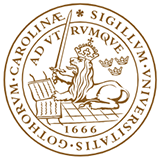
Lund University
-
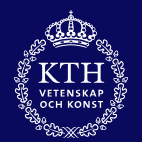
KTH Royal Institute of Technology
-
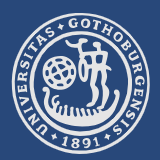
University of Gothenburg
-
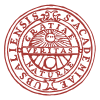
Uppsala University
-
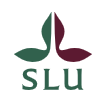
Swedish University of Agricultural Sciences
-

Halmstad University
-
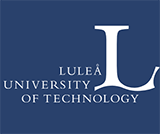
Luleå University of Technology
-
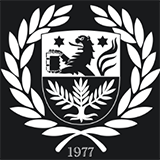
University of Skövde
-
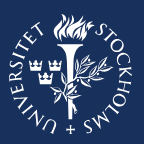
Stockholm University
-

Mesoamerican University
-

Istmo University
-

Mariano Galvez University of Guatemala
-

Regional University of Guatemala
-

Galileo University
-

Francisco Marroquín University
-

Rafael Landívar University
-

University of the Valley of Guatemala
-

University of San Carlos of Guatemala
-

Technological Institute of Tlaxcala Plateau
-

Golfo University
-

Technological University of South Sonora
-

Technological University of Huejotzingo
-

Tizimín Institute of Technology
-

Chilpancingo Institute of Technology

